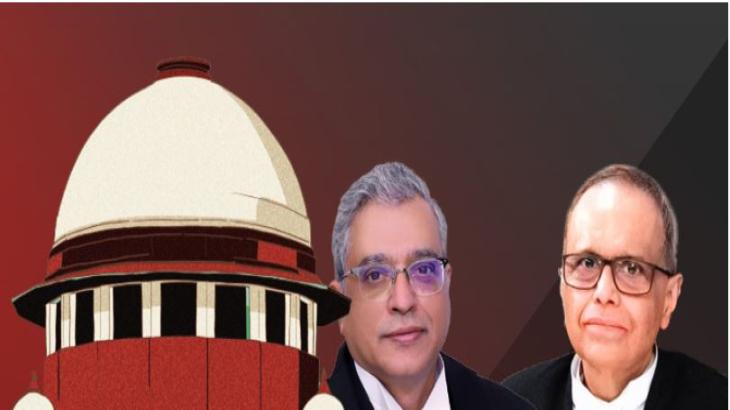
Legal Consultant India
2025-11-08
Criminal
'Property Purchase Traumatic' : Supreme Court Suggests Use Of Blockchain Technology To Make Land Registrations Easy & Reliable
The Court flagged colonial-era property laws, as per which property registration is not a conclusive guarantee of ownership. Listen to this Article In a set of observations with far-reaching implications for property law in India, the Supreme Court has called for a fundamental reform of the country's land registration and titling system, noting that the existing legal framework, based on colonial-era statutes, has perpetuated confusion, inefficiency and massive litigation. A Bench comprising Justice PS Narasimha and Justice Joymalya Bagchi examined the “dichotomy between registration and title” and urged the Government of India to take the lead in modernizing the real estate transaction system using emerging technologies such as blockchain. Also Read - Registration Act | Supreme Court Strikes Down Bihar Rule Requiring Vendor To Show Proof Of Mutation For Sale Registration The Court also requested the Law Commission of India to conduct a comprehensive study and submit a report after consulting the Union and State Governments, experts and stakeholders. Colonial-Era Laws Still Governing Property Transactions The Court observed that India's property transaction system continues to operate under a colonial framework governed by three century-old statutes: the Transfer of Property Act, 1882, the Indian Stamp Act, 1899, and the Registration Act, 1908. Also Read - Supreme Court Daily Round-Up : November 7, 2025 While these laws were designed for a different era, they still form the backbone of India's real estate system. However, the Court noted that they have long sustained a dichotomy between ownership and registration. “The Registration Act mandates registration of documents, not of title. Registration of a sale deed does not confer guaranteed ownership; it only serves as a public record of the transaction having presumptive evidentiary value,” the Bench observed. Also Read - Supreme Court Constitutes Committee Headed By Former Allahabad HC Judge To Resolve 20-Year Old Stalled Housing Project In Greater Noida This means that even a registered sale deed is not conclusive proof of ownership, leaving property buyers dependent on a long and painstaking title search across past transactions to establish marketable title. 'Property Purchase Has Not Been Easy; It's Traumatic' Highlighting the hardship faced by ordinary citizens, the Court said that the current system based on presumptive title through registration has made property transactions cumbersome, uncertain and litigation-prone. Also Read - Supreme Court Issues Notice On Plea Seeking One-Third Reservation For Women In State Bar Councils “Property purchase has not been easy. It is not difficult to find people grudgingly telling us that it is, in fact, traumatic,” the judgment authored by Justice Narasimha noted. According to the Court, property disputes constitute an estimated 66 percent of all civil cases in India, making land conflict one of the largest sources of litigation in the country. Registration of a document recording purchase of immovable property does not confer guaranteed title of ownership, instead it only serves as a public record of the transaction having presumptive evidentiary value, but it is never a conclusive proof of ownership. The presumption is rebuttable and can always be challenged in a court of law. This system has therefore placed a significant burden of due diligence on a prospective buyer who must undertake a painstaking title search, examining the chain of ownership through a series of past deeds, sometimes going beyond 30 years or more, to ensure marketable title. The uncertainty also compels obtaining a no encumbrance certificate from the sub registrar's office to confirm that the property is free from legal liabilities or mortgage. Property purchase has not been easy, it is not difficult to find people grudgingly telling us that it is in fact traumatic. The present system of presumptive title through registration is also the primary contributor to high volume of land related litigation in India. The Court said the outdated legal structure has created systemic deficiencies including fake documents, land encroachments, delays, the role of intermediaries and fragmentation of rules across states, all of which have undermined public confidence in land transactions. The legal framework for purchase and sale of immovable properties suffer from several systemic deficiencies that undermine reliability, transparency and efficiency. There are problems relating to i) fake and fraudulent property documents, ii) rights and liabilities, iii) land encroachments, iv) delay in verification processes, and v) role of intermediaries etc. In addition to these, there are also administrative problems at the office of the sub-registrar of registration, involving the statutory and regulatory requirements of the presence of the buyer and seller along with two witnesses for document verification, legal authentication collection, and offici



